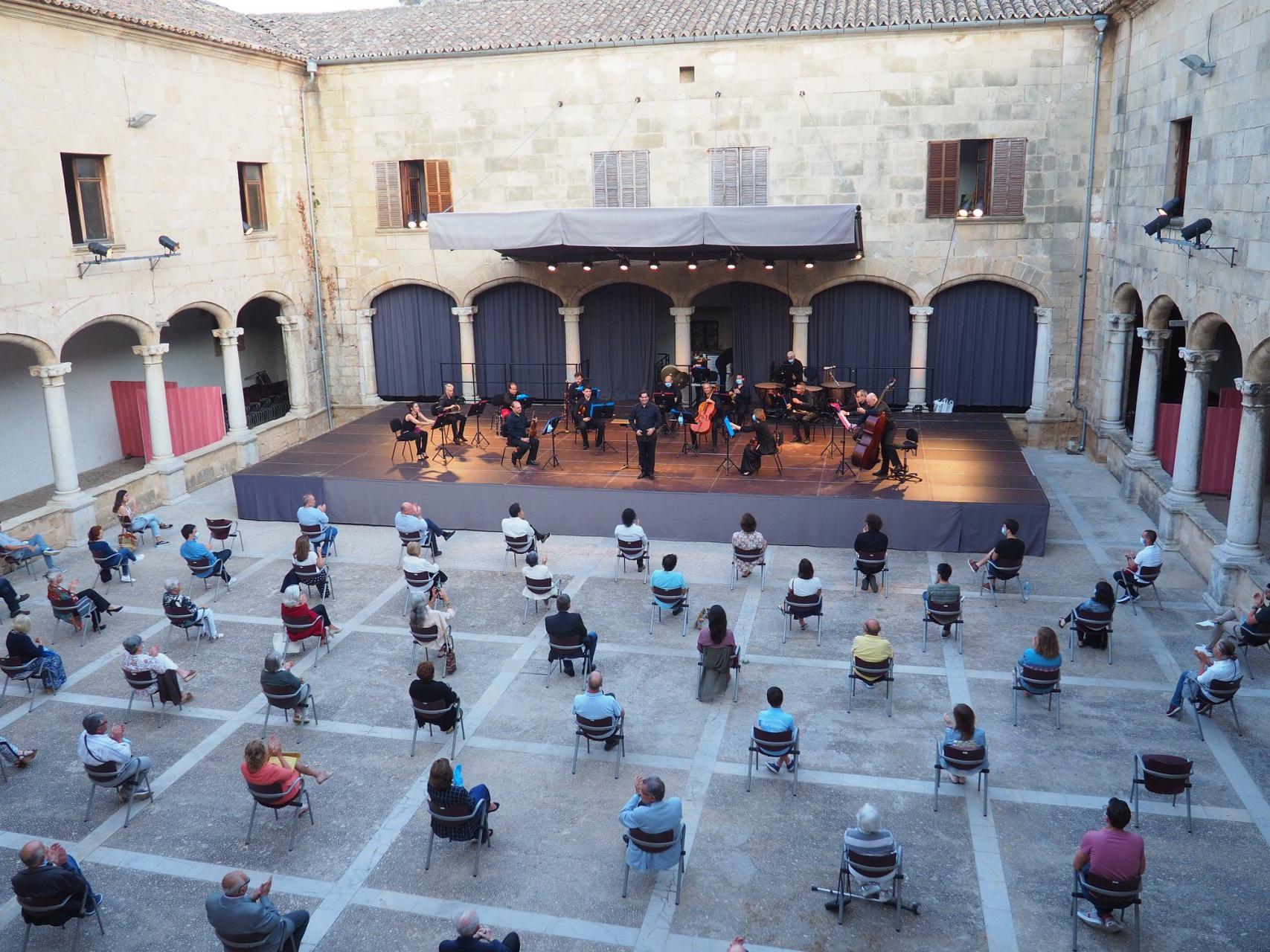The Pollensa Festival nowadays typically starts with a concert before the La Patrona fiestas and then takes a break while the fiestas are on. So it has been this year, the Balearic Symphony Orchestra rebooting things today, the Thursday concert (Yuja Wang and Andreas Ottensamer) having been cancelled.
But what did the schedule look like in years past, and what was the publicity like? To commemorate this year’s sixtieth edition, a “virtual” exhibition has been loaded on the festival’s website (festivalpollenca.com). Photos and posters prove that the festival rightly deserves its reputation as one of Mallorca’s most important cultural events.
These are just some of the names mentioned on the posters and included in the photo gallery - Andrés Segovia, Dame Janet Baker, Montserrat Caballe, Julian Bream, Vienna Boys Choir, Jessye Norman, James Galway, Mstislav Rostropovich, Yehudi Menuhin, Ravi Shankar, Jacques Loussier Play Bach Trio, John Williams & Friends, Brubeck Brothers Quartet, Roger Hodgson, Tony Hadley, Francisco Fullana, José Mercé, Michael Nyman.
These names show that the festival has gone through changes over the years. This was especially so in 2008 and 2009, which was when Roger Hodgson (Supertramp) and Tony Hadley (Spandau Ballet) performed. But it has always essentially been a festival for classical music, and its founder - violinist Philip Newman - is one of those in the gallery.
The classical emphasis hasn’t always been reflected in the posters. Typography of the 1960s resulted in a 1967 design that looks like a wanted poster. In 1968, there was a definite West Coast psychedelic feel; this wasn’t, if one’s being honest, entirely in keeping with the style of the festival. It was 1991 when a more sophisticated approach was adopted.
Very different memories come in the form of a book by Rafel Trias. Its title is ‘El Contraban i l’Estraperlo de la Postguerra: Pollença 1939-1965’. Estraperlo refers to a fraudulent roulette that originated in the Netherlands and was to become a huge scandal in Spain at the time of the Second Republic. The word passed into common usage to mean black market.
The book is therefore about the smuggling and the black market in Pollensa that flourished because of rationing and the system of autarky in Spain after the Civil War. Autarky, the disastrous economic model of self-sufficiency and state protectionism adopted by the xenophobic and nationalist Franco regime before the technocrats and American influence brought about the shift to a market economy, meant (in theory) that there were no imports.
A consequence of this model was the black market. Rafel Trias, whose family was involved with this, interviewed over 50 people (most of them now deceased) over some twenty years. These interviews and research of official documentation have resulted in the book.
Local historian Pere Salas says that the stories which people had to tell “hook you from the beginning” but that they also leave the reader with the impression that there is more that could be said. “A pact of silence and a kind of voluntary amnesia” continued to prevail, even with the distance of time.


No comments
To be able to write a comment, you have to be registered and logged in
Currently there are no comments.